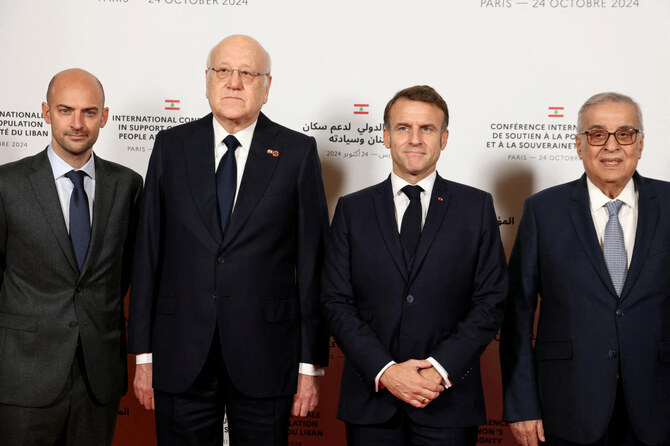PARIS: France’s foreign minister said an international conference for Lebanon raised $1 billion in pledges for humanitarian aid and military support to help the country where war between Hezbollah militants and Israel has displaced a million people, killed over 2,500, and deepened an economic crisis.
Jean-Noël Barrot said: “We have collectively raised $800 million in humanitarian aid and $200 million for the security forces, that’s about $1 billion,” in his closing speech at the Paris conference, which gathered over 70 nations and international organizations.
“We’re up to the challenge,” Barrot said.
The United States pledged to provide about $300 million, he said.
French President Emmanuel Macron had called on participants to bring “massive aid” to support the country, as France promised $100 million.
The United Nations had previously estimated the urgent humanitarian needs in Lebanon to be $426 million.
Germany pledged a total of 96 million euros in humanitarian aid to both Lebanon and neighboring Syria, also deeply affected by escalating violence in the Middle East. Italy announced this week an additional 10 million euros ($10.8 million) in aid for Lebanon.
However, experts warn that delivering aid could be challenging as Lebanon’s growing dependence on informal and cash economy increases lack of transparency and corruption risks.
The Paris conference also aimed at coordinating international support to strengthen Lebanon’s armed forces so they can deploy in the country’s south as part of a potential deal to end the war. Such a deal could see Hezbollah withdraw its forces from the border.
This support to the Lebanese military includes “helping with health care, fuel, small equipment, but also supporting the plan to recruit at least 6,000 additional soldiers and to enable the deployment of at least 8,000 additional soldiers in the south,” Macron said.
Paris also seeks to help restore Lebanon’s sovereignty and strengthen its institutions. The country, where Hezbollah effectively operates as a state within a state, has been without a president for two years while political factions fail to agree on a new one.
UN Secretary-General António Guterres, in a pre-recorded video, called on Lebanon’s leaders “to take decisive action to ensure the proper functioning of state institutions in order to meet the country’s urgent political and security challenges.”
Acting Lebanese Prime Minister Najib Mikati urged the international community to take action.
“The devastating impact of this war on our nation cannot be overstated, and it has left a trail of destruction and misery in its wake. The Israelis’ aggression has not only caused immense human suffering and loss of lives, but also inflicted severe damage to the country’s infrastructure, economy and social fabric,” Mikati said Thursday in Paris.
In Lebanon, an Israeli airstrike killed early Thursday three Lebanese soldiers, including an officer, as they were evacuating wounded people in southern Lebanon. The Lebanese army said Israeli forces have targeted it on eight occasions since an all-out war broke out between Israel and Hezbollah in September.
The Israeli army apologized for a strike on Sunday that it said mistakenly killed three soldiers, and on Wednesday said it was looking into whether “a number of soldiers of the Lebanese army were accidentally harmed” after it targeted what it says was Hezbollah infrastructure.
Israel in the past month has launched a major aerial bombardment and ground invasion of Lebanon as it says it’s targeting Hezbollah, with strikes hitting the capital, Beirut, and elsewhere.
The International Organization for Migration has said about 800,000 people are displaced, with many now in overcrowded shelters, while others have fled across the border into Syria. Mikati on Thursday estimated the number of displaced people is over 1.4 million, including 500,000 children.
The cash-strapped Lebanese government is ill-prepared to deal with the crisis or the increased demands on its health system. Several have been evacuated because of nearby airstrikes and fears that they might be targeted.
Lebanon’s army has been hit hard by five years of economic crisis. It has an aging arsenal and no air defenses, leaving it in no position to defend against Israeli incursions or confront Hezbollah.
The Lebanese army has about 80,000 troops, around 5,000 of them deployed in the south. Hezbollah has more than 100,000 fighters, according to the militant group’s late leader, Hassan Nasrallah. The militant group’s arsenal, built with support from Iran, is more advanced.
Conference participants also are to discuss how to support the 10,500-soldier-strong UN peacekeeping mission, UNIFIL. European nations including France, Italy and Spain provide a third of its troops.
Italy, which has over 1,000 troops in UNIFIL, is pushing for the peacekeeping force to be strengthened to “be able to face the new situation” on the ground, an Italian diplomat said, speaking anonymously to discuss ongoing talks.
Guterres said Thursday that “attacks on UN peacekeepers are totally unacceptable and are contrary to international law, contrary to international humanitarian law and may constitute a war crime.”
France’s historic links with Lebanon, a former colony, and its influential diplomacy give Paris momentum to coordinate “a proper response to the massive challenge that the war in Lebanon now poses,” said Middle East expert Rym Montaz, editor-in-chief of Carnegie Europe’s blog Strategic Europe.
“What we do know is that without a strengthened Lebanese armed forces and UNIFIL, there can be no sustainable peace and stability at the border between Lebanon and Israel,” Montaz said. “As such, the French efforts are important and crucial for the way forward.”
French foreign minister says conference for Lebanon raised $1 billion in pledges
https://arab.news/4t6gg
French foreign minister says conference for Lebanon raised $1 billion in pledges

- Jean-Noël Barrot said: “We have collectively raised $800 million in humanitarian aid and $200 million for the security forces, that’s about $1 billion”
- The United States pledged to provide about $300 million, he said
Syria forces beef up security amid reports of mass killings of Alawites

- The Alawite heartland has been gripped by fear of reprisals for the Assad family’s brutal rule, which included widespread torture and disappearances
BEIRUT, Lebanon: Syrian security forces deployed heavily in the Alawite heartland on the Mediterranean coast on Saturday, after a war monitor reported that government and allied forces killed nearly 750 civilians from the religious minority in recent days.
Residents of the region continued to report killings of civilians after deadly clashes broke out on Thursday between Syria’s new authorities and gunmen loyal to toppled president Bashar Assad, himself an Alawite.
The Syrian Observatory for Human Rights reported that 745 Alawite civilians were killed in the coastal provinces of Latakia and Tartus.
The Britain-based Observatory said they were killed in “executions” carried out by security personnel or pro-government fighters, accompanied by the “looting of homes and properties.”
The civilian deaths took the overall toll from violence in the region since Thursday to 1,018, after fighting killed 125 members of the new government’s security forces and 148 pro-Assad fighters, according to the Observatory’s figures.
The official SANA news agency reported that security forces had deployed to Latakia, as well as Jableh and Baniyas farther south, to restore order.
Baniyas resident Samir Haidar, 67, told AFP two of his brothers and his niece were killed by “armed groups” that entered people’s homes, adding that there were “foreigners among them.”
He managed to escape to a Sunni neighborhood, but said: “If I had been five minutes late, I would have been killed... we were saved in the last minutes.”
Though himself an Alawite, Haidar was part of the leftist opposition to the Assads and was imprisoned for more than a decade under their rule.
Defense ministry spokesman Hassan Abdul Ghani said the security forces had “reimposed control” over areas that had seen attacks by Assad loyalists.
“It is strictly forbidden to approach any home or attack anyone inside their homes,” he added in a video posted by SANA.
The news agency later reported that “regime remnants” staged an ambush in the town of Al-Haffah in Latakia province, killing one member of the security forces and wounding two.
Education Minister Nazir Al-Qadri announced that schools would remain shut on Sunday and Monday in both Latakia and Tartus provinces due to the “unstable security conditions.”
SANA reported a power outage throughout Latakia province due to attacks on the grid by Assad loyalists.
The killings followed clashes sparked by the arrest of a wanted suspect in a predominantly Alawite village, the Observatory reported.
The monitor said there had been a “relative return to calm” in the region on Saturday, as the security forces deployed reinforcements.
A defense ministry source told SANA that troops had blocked roads leading to the coast to prevent “violations,” without specifying who was committing them.
Latakia province security director Mustafa Kneifati said: “We will not allow for sedition or the targeting of any component of the Syrian people.
“We will not tolerate any acts of revenge under any circumstances,” he told SANA.
Islamist group Hayat Tahrir Al-Sham (HTS), which led the lightning offensive that toppled Assad in December, has its roots in the Syrian branch of Al-Qaeda and remains proscribed as a terrorist organization by many governments including the United States.
Since the rebel victory, it has sought to moderate its rhetoric and vowed to protect Syria’s religious and ethnic minorities.
The Alawite heartland has been gripped by fear of reprisals for the Assad family’s brutal rule, which included widespread torture and disappearances.
Social media users have shared posts documenting the killing of Alawite friends and relatives, with one user saying her mother and brothers were “slaughtered” in their home.
AFP could not independently verify the accounts.
The Observatory, which relies on a network of sources in Syria, has reported multiple “massacres” in recent days, with women and children among the dead.
The Observatory and activists released footage showing dozens of bodies in civilian clothing piled outside a house, with blood stains nearby and women wailing.
Other videos appeared to show men in military garb shooting people at close range.
AFP could not independently verify the images.
The leaders of Syria’s three main Christian churches issued a joint statement condemning “the massacres targeting innocent civilians.”
The spiritual leader of Syria’s Druze minority, Sheikh Hikmat Al-Hajjri, also called for an end to the violence.
The International Committee of the Red Cross urged all parties to “ensure umimpeded access to health care and protection of medical facilities.”
Aron Lund of the Century International think tank said the violence was “a bad omen.”
The new government lacks the tools, incentives and local support base to engage with disgruntled Alawites, he said.
“All they have is repressive power, and a lot of that... is made up of jihadist zealots who think Alawites are enemies of God.”
With Hezbollah’s influence eroded, can Lebanon forge a brighter future?

- Country is braced for a hopeful era with a new government in place and the Iran-backed group marginalized
- Beirut working with Riyadh to resume trade and rebuild trust as President Aoun’s visit revitalizes relations
DUBAI: For the first time since its creation in 1982, Lebanon’s Iran-backed Hezbollah militia has seen its political and military clout diminished after a devastating war with Israel gutted its leadership, emptied its coffers, and depleted its once formidable arsenal.
Despite the grand funeral of its slain leader, Hassan Nasrallah, attended by thousands of mourners at Beirut’s Camille Chamoun Stadium on Feb. 23 to project an image of resilience and strength, the group’s influence over Lebanon and the wider region is undoubtedly on the wane.
“The Lebanese are certainly ready for a new period in the country where the state has a monopoly over weapons,” Michael Young, a senior editor at the Beirut-based Malcolm H. Kerr Carnegie Middle East Center, told Arab News.
“As for Hezbollah, it is not going to disappear, on the contrary, it is still around. The big question is whether it can transform itself or not.”
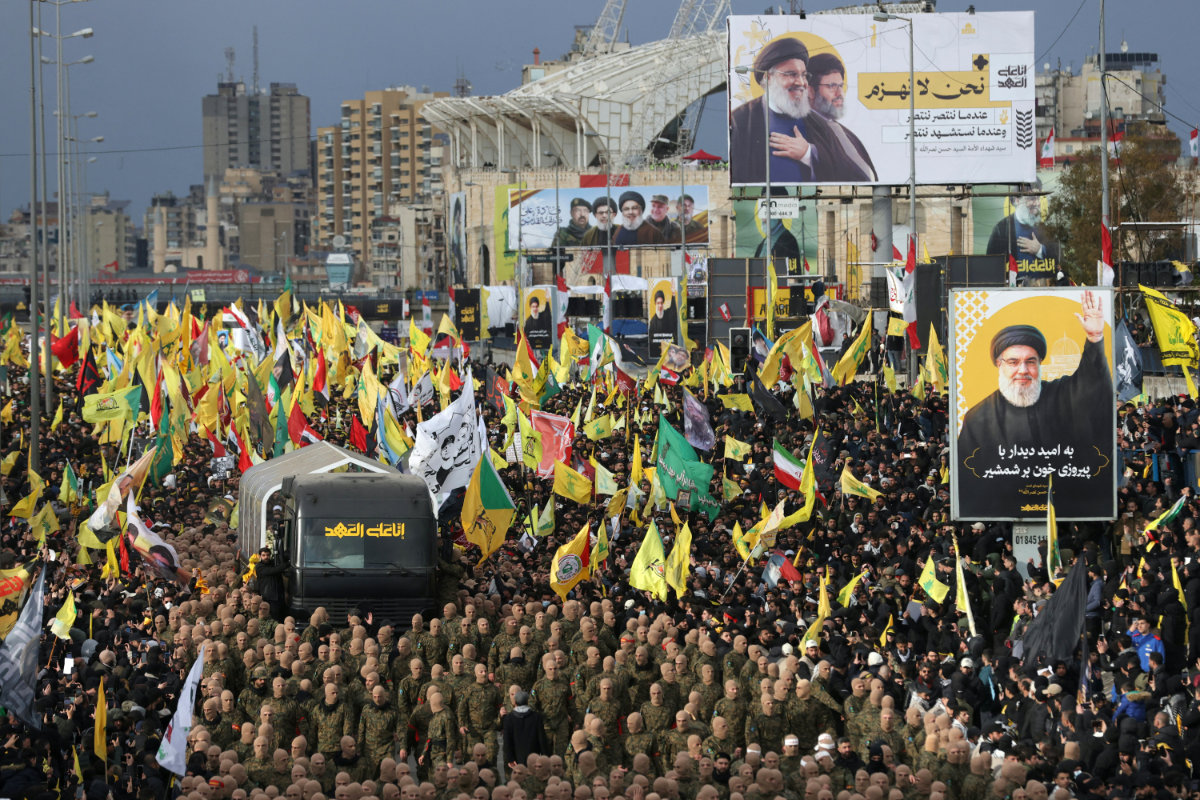
The fall of the Bashar Assad regime in neighboring Syria — once a critical supply line for weapons from Iran — has compounded Hezbollah’s woes, leaving it isolated, unable to rearm, and increasingly powerless to dictate Lebanese affairs.
Hezbollah is reportedly facing a financial crisis, leaving it scrambling to provide monetary support to the families of its injured members and to finance reconstruction work in its southern and eastern strongholds devastated by Israeli bombardment.
“Some Hezbollah supporters have embraced the change while others are still screaming,” a waiter at one of the cafes along Beirut’s Hamra Street who did not wanted to be identified told Arab News.
“If we have to drag them into this new era kicking and screaming, then we will. It has been about them for so many decades. They left the country broken and darkened. It’s time to move on.”
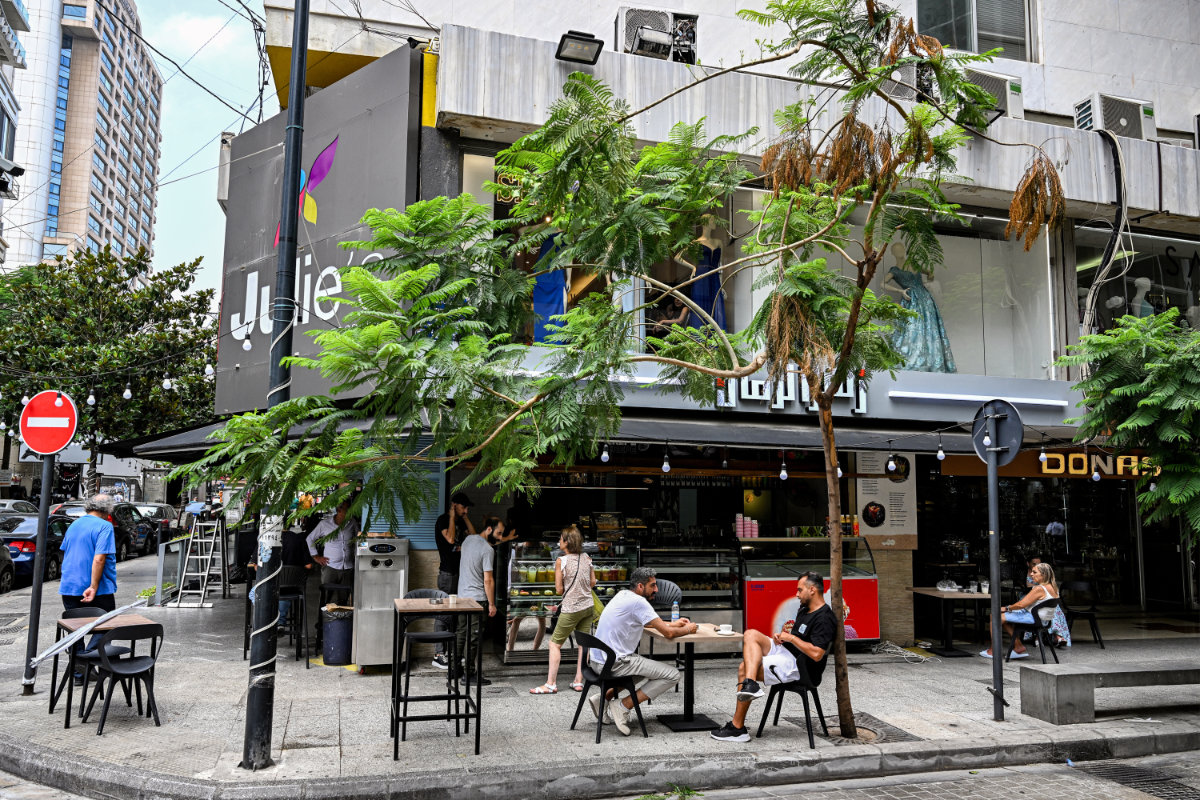
Many Lebanese have warmly welcomed the end of Iranian hegemony and the crippling of its biggest proxy in the Middle East. The election of former army chief Joseph Aoun as president and ICJ judge Nawaf Salam as prime minister in January is emblematic of this shift.
Backed by the US, France, and Saudi Arabia, Aoun’s election by Lebanese lawmakers is the clearest indication yet that Iran’s influence in Lebanon is spent, opening the way to reforms and international support to help pull the nation out of the mire.
Aoun’s recent visit to Saudi Arabia — the first by a Lebanese leader in eight years — has been regarded as a positive step in resetting ties between the two countries.
During the visit, Prime Minister and Crown Prince Mohammed bin Salman promised to reactivate a $3 billion funding package for the Lebanese army, and a released joint statement declared both sides are looking into ways to allow Saudi citizens to visit Lebanon again.

Both countries are also looking into the resumption of Lebanese imports into the Kingdom, which had been halted due to the smuggling of millions of amphetamine and Captagon pills into the Arab Gulf states via Lebanon, often hidden in regular cargo.
To be sure, not everyone in Lebanon is pleased with the dramatic political shift taking place. Hezbollah supporters have been left reeling since the loss of their charismatic leader and the forced acceptance of the US-brokered ceasefire with Israel, which has been interpreted as a major blow to the “Axis of Resistance” of Iran-backed proxies throughout the region.
“The Shiite community in Lebanon had their golden days under Nasrallah, and now it’s a new phase where they’re mourning the golden days,” Hanin Ghaddar, a senior fellow at the Washington Institute, said in an interview with an Israeli TV channel.
IN NUMBERS
• Real GDP (PPP): $65.8 billion
• Total population: 5.36 million
• Public debt: 146.8% of GDP
• Total refugees: 1.27 million+
Source: The World Factbook (CIA)
Ghaddar, who is originally from southern Lebanon, said that Hezbollah called for a mass demonstration in downtown Beirut on March 8, 2005, to “ascertain that they’re taking over, inheriting the Syrian army and taking over the Lebanese institutions.”
The war between Israel and the Lebanese militia began on Oct. 8, 2023, when fighters in south Lebanon began firing rockets into northern Israel in solidarity with the Palestinian militant group Hamas, which a day earlier had attacked southern Israel, triggering the war in Gaza.
What began as a tit-for-tat exchange of fire along the Israel-Lebanon border suddenly escalated in September 2024 when Israel intensified its aerial bombardment of Hezbollah positions, attacked its communications networks, and mounted a ground offensive.

On Sept. 17-18, thousands of pagers and hundreds of walkie-talkies in the possession of Hezbollah members suddenly exploded in synchronized waves after being sabotaged by Israel. The attack killed 42 and injured 3,500, crippling the militia’s communications.
According to one of Nasrallah’s sons, Jawad, his father was left spiritually broken by the pager and walkie-talkie attack and the death of Fuad Shukr, a senior commander and long-time Hezbollah member, in an Israeli strike.
In an interview with Lebanese television network Al-Manar, Jawad described his father as “spiritless and sad” after these blows.
“You could see that he was hurt,” he said. “There were times I could not bear to hear his voice when he was in that state. You listen to him trying to seek encouragement, but once you hear his voice, it hurts your heart. Later, I learned that he was crying.”
On Sept. 27, 2024, Nasrallah was killed in an Israeli airstrike on an underground Hezbollah headquarters in Beirut’s Dahiyeh suburb. The attack, carried out by Israeli F-15I fighter jets, involved more than 80 bombs, destroying the bunker and nearby buildings.

The Israel military confirmed Nasrallah’s death on Sept. 28, and his body was recovered the following day. The strike resulted in at least 33 deaths and nearly 200 injuries, including civilians.
As the conflict threatened to drag the US and Iran into direct confrontation, with the Islamic Revolutionary Guard Corps and Israel trading missile strikes, the international community acted to secure a ceasefire in November 2024, which has by and large held.
Hezbollah’s battering by Israel has left it politically enfeebled, allowing independent lawmakers and parties not affiliated with the militia to establish a new government after more than two years of political deadlock.

“Up to now there are no signs that the party is going through a reassessment of its previous strategy, although some say within the party such discussions are taking place,” Carnegie Middle East Center’s Young told Arab News.
“Given the hardening of the Iranian position recently, with Supreme Leader of Iran Ayatollah Ali Khamenei saying there can be no negotiations with America, I am not sure that is correct.”
Lebanon remains in the midst of a devastating economic crisis, with the local currency having lost more than 90 percent of its value since 2019 and up to 80 percent of the population living in poverty — at least 40 percent of them in extreme poverty.
Unemployment rates have skyrocketed and banks continue to impose strict controls on withdrawals and transfers. Meanwhile, the World Bank estimates it will cost $8.5 billion to repair the damage of the Israel-Hezbollah conflict.
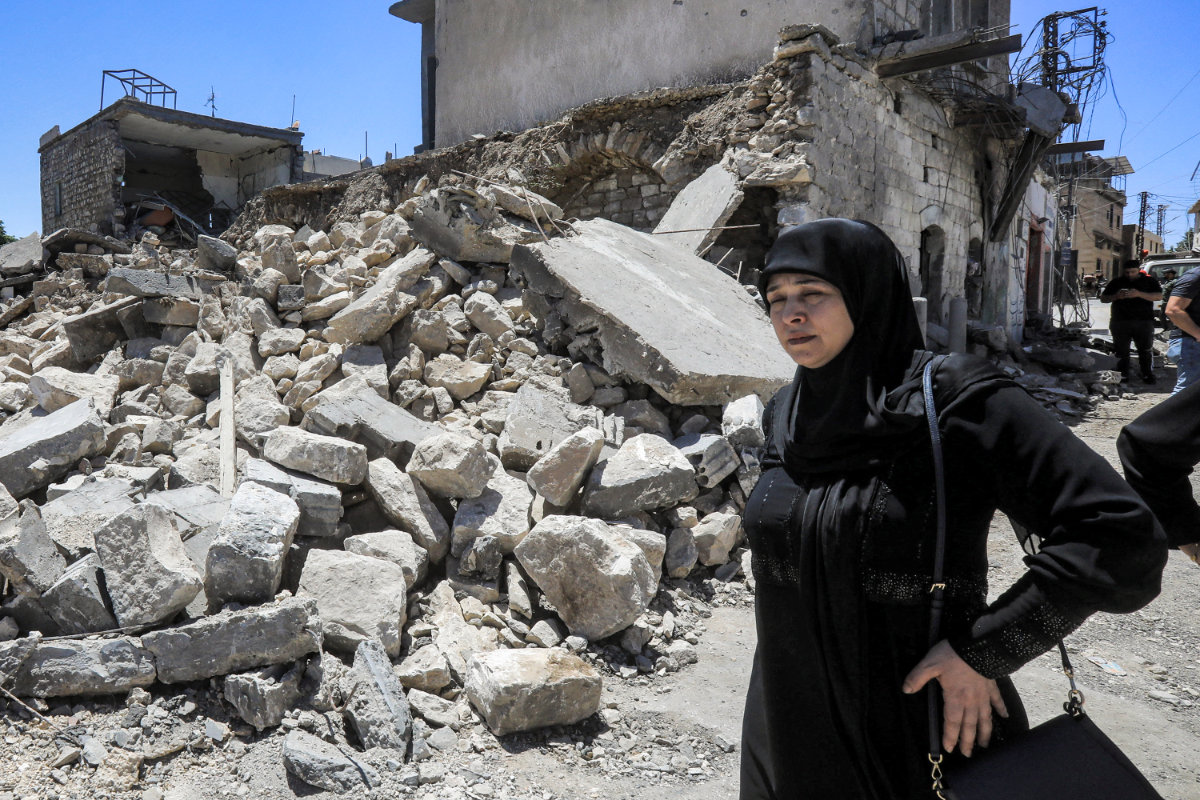
For the thousands of Lebanese who were forced to flee their homes in the south under Israel’s bombardment, the mere suggestion that Hezbollah was somehow victorious in the conflict, as some hardline supporters like to claim, is utterly delusional.
“If my parents return to their village, when should we expect them to be expelled again?” Ali, a university student who now lives with his parents in a cramped Beirut apartment and did not want to give his full name, told Arab News.
“How many more times? We are caught in the crossfire, doomed to be a football between Hezbollah and Israel.
“We are tired of being kicked around. It is shameful. Then you get a deluded supporter who tells you we’ve won. What did we win?”
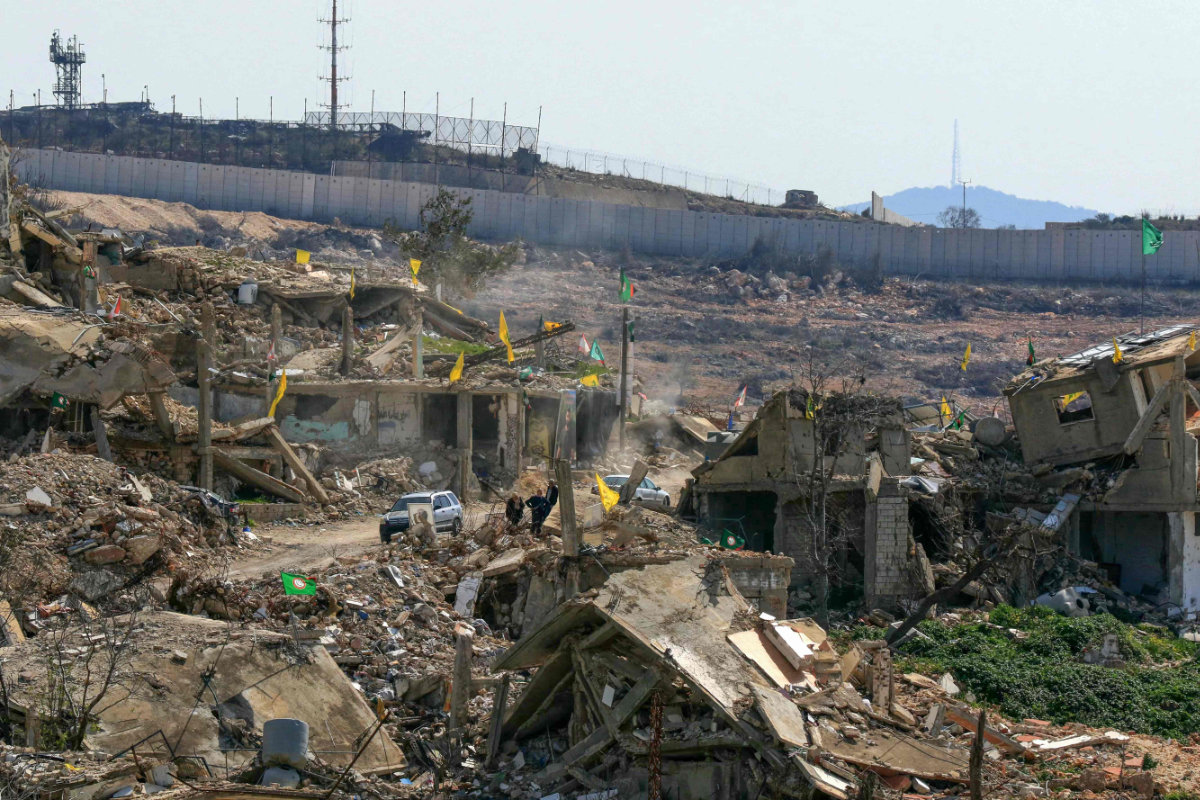
The international community and Arab donors have so far refused to release any aid funds until UN Security Council Resolution 1701 is fully implemented, which calls for the disarmament and disbanding of all armed groups in the country except for the Lebanese army.
After several years of political gridlock and a power vacuum once filled by Hezbollah and the Amal bloc led by Nabih Berri, Lebanon is now in a unique position to stabilize and integrate itself once again into the Arab fold.
President Aoun’s remarks during the Arab League summit in Cairo on March 4 reflect his apparent determination to set Lebanon on this new course, with some describing his speech as “resistance through diplomacy.”
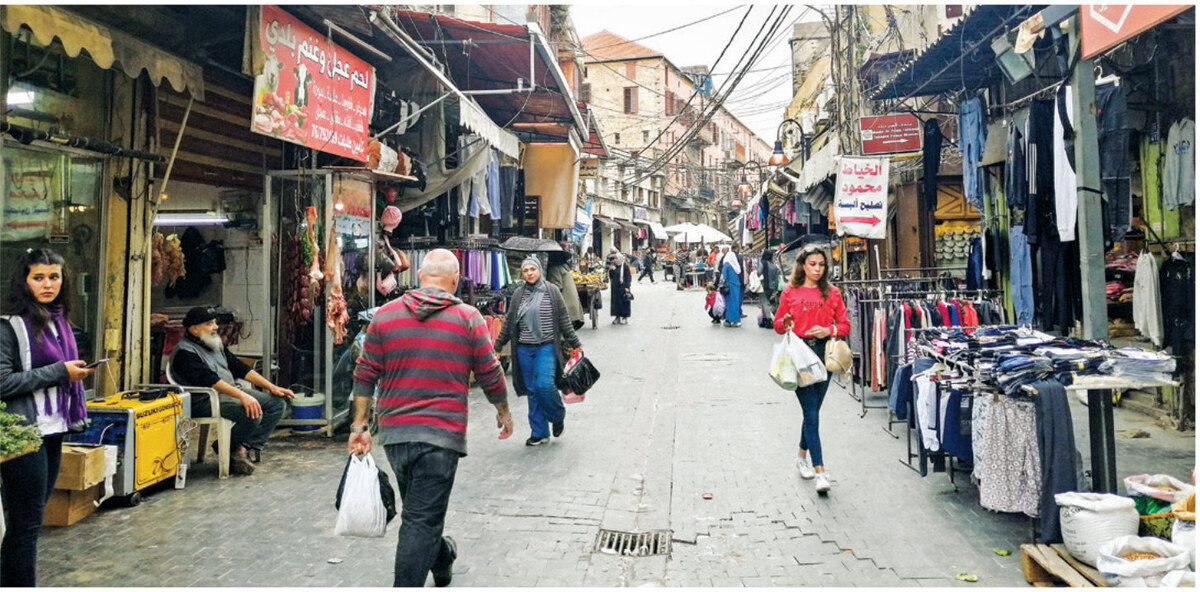
The Washington Institute’s Ghaddar believes that while the current phase may not be “the end of Hezbollah for the (Lebanese Shiite) community,” the lack of money, jobs, services, and reconstruction has led people to seek alternatives.
“It’s very clear that Hezbollah is no longer an option for them,” she said in the interview with the Israeli TV channel.
Today, “Hezbollah is a new entity, which cannot provide, cannot protect, obviously cannot preserve, and cannot rebuild.”

Some 200 detained after Istanbul Women’s Day march: organizers

- Although the march ended without incident, organizers said police then started rounding up a number of protesters
- “The police started to detain our friends in an act of provocation,” the march organizers wrote on X
ISTANBUL: Police detained some 200 demonstrators in Istanbul late on Saturday after more than 3,000 women marched peacefully through the city center under tight security to mark International Women’s Day, organizers said.
For years protests have been banned in the city’s central Taksim Square, which is habitually fenced off with barriers, but the authorities have in recent years tolerated rallies nearby albeit under a heavy security presence.
The Feminist Night March rally began at sunset near Taksim Square, with many demonstrators wearing purple and waving banners with slogans including “We won’t be silenced, we’re not afraid and we won’t obey” and “Long live our feminist struggle.”
Although the march ended without incident, organizers said police then started rounding up a number of protesters, posting footage showing officers roughly dragging several demonstrators out of the crowd.
“After the #FeministNightMarch finished and the crowd dispersed without incident, the police started to detain our friends in an act of provocation,” the march organizers wrote on X.
“Nearly 200 women were unjustly detained on March 8!” they added.
There was no immediate comment from the authorities.
Earlier, several hundred demonstrators had gathered for a protest in the Kadikoy neighborhood on the Asian side of the city, also waving banners as they marched through the streets.
“With our demand for an end to violence against women, for the ratification of the Istanbul Convention against femicide... and for social policies that don’t place the burden of care on women, we are pursuing our March 8 struggle for democracy, equality, peace and fraternity,” Arzu Cerkezoglu, chairwoman of the DISK trade union, told AFP.
She was referring to President Recep Tayyip Erdogan’s 2021 decision to pull Turkiye out of the Istanbul Convention, which requires countries to set up laws aimed at preventing and prosecuting violence against women.
Turkiye does not collate official figures on femicides, leaving the job to women’s organizations which collect data on murders and other suspicious deaths from press reports.
According to figures gathered by the We Will Stop Femicide Platform rights organization, at least 1,318 women have been killed by men since Turkiye withdrew from the convention in March 2021.
Hamas sees ‘positive’ signs for start of phase two Gaza truce talks

- Israel says it is sending a delegation to talks in Doha on Monday
- Palestinian militant group meets with mediators in Cairo
CAIRO: Hamas said on Saturday that there were “positive” signs regarding the start of negotiations for the second phase of the fragile Gaza ceasefire, as a delegation from the Palestinian militant group met with mediators in Cairo.
Meanwhile, Prime Minister Benjamin Netanyahu’s office said Israel would send a delegation to Doha on Monday for truce talks.
Hamas spokesperson Abdel Latif Al-Qanoua said in a statement that “efforts of the Egyptian and Qatari mediators are ongoing to complete the implementation of the ceasefire agreement.”
“The indicators are positive regarding the start of negotiations for the second phase,” he added, without providing further details.
In a statement, Netanyahu’s office said that Israel had accepted an invitation from US-backed mediators and would “send a delegation to Doha on Monday in an effort to advance the negotiations.”
The first phase of the Gaza ceasefire ended on March 1 after six weeks of relative calm that included exchanges of Israeli hostages for Palestinian prisoners, though widespread hostilities have not resumed.
While Israel has said it wants to extend the first phase until mid-April, Hamas has insisted on a transition to the second phase, which should lead to a permanent end to the war.
On Saturday, a high-level Hamas delegation held talks with Egyptian officials over the second phase of the ceasefire. The truce has largely halted more than 15 months of fighting in Gaza.
In the statement, Al-Qanoua spoke of the “necessity of obligating the mediators to ensure Israel implements the agreement,” adding that: “Hamas affirms its readiness to begin negotiations for the second phase to meet the demands of our Palestinian people.”
Under the first phase, Gaza militants handed over 25 living hostages and eight bodies in exchange for the release of about 1,800 Palestinian prisoners held in Israel.
Of the 251 captives taken during Hamas’s October 7, 2023 attack on Israel that triggered the war, 58 remain in the Palestinian territory, including 34 the Israeli military has confirmed are dead.
France condemns Syria violence targeting ‘civilians’

- A French foreign ministry statement called on Syria’s new authorities to ensure independent investigations
PARIS: France on Saturday condemned violence in the Syrian Arab Republic targeting “civilians because of their faith, and prisoners,” as a war monitor said more than 500 Alawites have been killed in recent days.
A French foreign ministry statement called on Syria’s new authorities “to ensure that independent investigations can shed light on these crimes, and that the perpetrators are sentenced.”
The Syrian Observatory for Human Rights on Saturday reported that 532 Alawite civilians were killed in Syria “by security forces and allied groups.”
The Alawites are a religious minority to which toppled president Bashar Assad belongs.
The wave of violence targeting them follows a rebel coalition led by Islamist group Hayat Tahrir Al-Sham (HTS) seizing power in December. After its victory, HTS had vowed to protect Syria’s religious and ethnic minorities.


